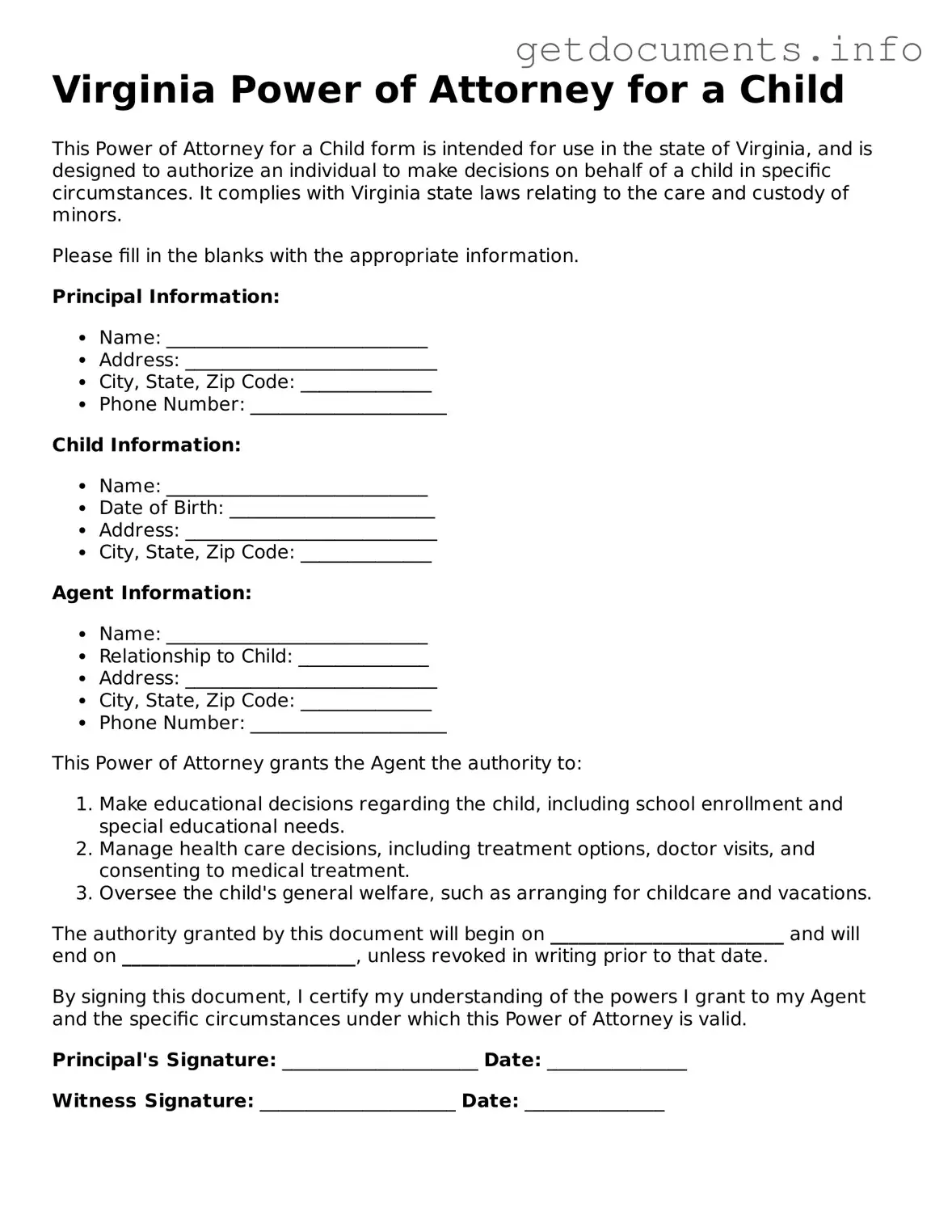Free Power of Attorney for a Child Template for Virginia
The Virginia Power of Attorney for a Child form is a legal document that allows a parent or guardian to grant temporary authority to another adult to make decisions on behalf of their child. This arrangement can be crucial in situations where the parent is unable to care for the child due to travel, illness, or other circumstances. To ensure the well-being of your child during such times, consider filling out the form by clicking the button below.
Access Power of Attorney for a Child Editor

Free Power of Attorney for a Child Template for Virginia
Access Power of Attorney for a Child Editor
Got places to be? Complete the form fast
Fill out Power of Attorney for a Child online and avoid printing or scanning.
Access Power of Attorney for a Child Editor
or
⇩ PDF File
